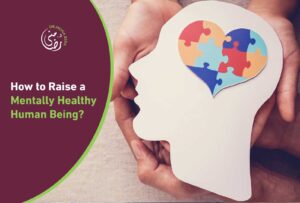Jealousy, especially excessive jealousy is the feeling that stems from fear and insecurity and transcends the boundaries of love and emotional attention. In the age of social media, we have become susceptible to watching the lives of others in all their details.
Here comes the question of whether this feeling is just a normal reaction from love and attention, or is it a psychiatric illness that calls for therapeutic intervention?
What is the meaning of pathological jealousy?
Jealousy is normal between the two partners, but when it becomes severe and irrational, it greatly damages the emotional relationship.
normal jealousy is in which feelings are moderate, helping couples appreciate each other, making love stronger, and making a greater effort to maintain this relationship and achieve happiness for both parties.
But pathological jealousy is unhealthy jealousy and can threaten couples’ relationships due to increased suspicion and insecurity resulting in a loss of trust between them.
Causes of excessive jealousy
The causes of jealousy include:
1. Feeling insecure.
2. Fear of abandonment or betrayal.
3. Love possession and desire to control.
4. Setting unrealistic expectations about relationships in general.
5. Live a harmful experience of abandonment in the past.
6. Psychological factors play an important role in this. People with excessive anxiety are more jealous than others.
7. Not feeding emotional needs during childhood results in feeling emotionally disadvantaged.
Symptoms of pathological jealousy
Symptoms of pathological jealousy are multiple and include:
1. Lack of trust in the partner, especially if they are not together.
2. Feeling worried when someone else is mentioned.
3. Constantly inspect the partner’s social media accounts.
4. Always doubt the other side’s betrayal of him.
5. Permanent control over the partner’s behavior.
6. Anger and resentment frequently.
7. Non-constructive criticism.
8. Blame others.
How to deal with excessive jealousy?
Excessive jealousy can be a psychological phenomenon experienced by some people, but it is not necessarily a psychiatric disease. Jealousy is a normal emotion that can arise as a result of love and interest between partners.
Jealousy can be dealt with by:
1. Awareness of your negative feelings and thoughts about jealousy, because they may be based on false assumptions or unrealistic perceptions.
2. Talk openly with your partner, share your concerns and feelings. This helps build confidence between you and understanding the needs of the other party.
3. Boost your self-confidence and abilities. Excessive jealousy may be associated with a lack of self-confidence, so try to develop your skills and commitment to achieve your personal goals.
4. Try to control your feelings and thoughts through deep breathing and meditation techniques that help calm feelings and focus on the present rather than fantasy-based thinking and doubt.
5. Visit a specialist psychiatrist for help who provides you with the right tools and strategies to deal with excessive jealousy.
If you suffer from excessive jealousy with your partner, you can now contact Dr. Mona Reda, a psychiatrist, and get your consultation with a medical team specializing in the highest level of mental health.









